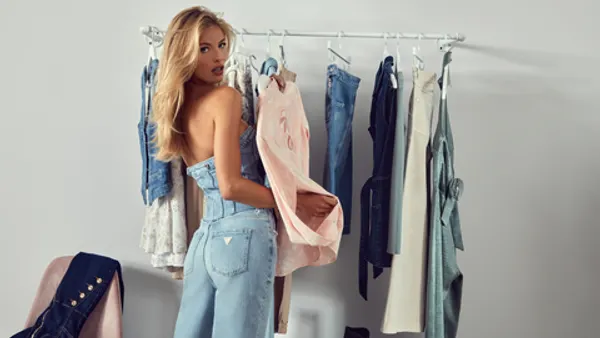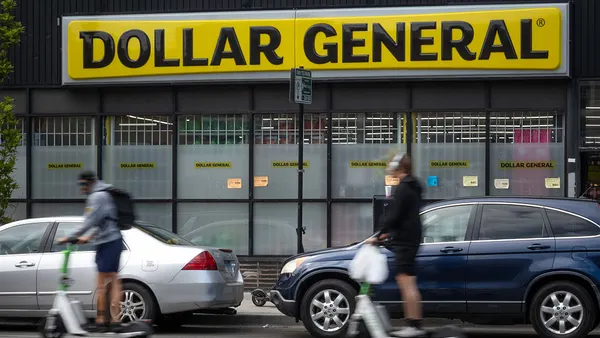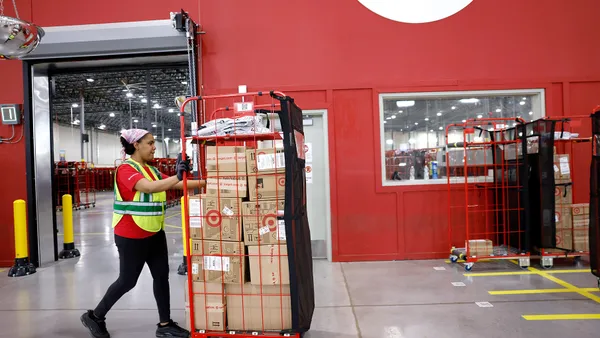RH as a company believes that the Trump administration’s expansive tariff policies, released Wednesday, serve as a negotiating tool “with an intent to improve and balance trade conditions around the world” that is already working, according to a press release Friday. The furniture retailer also provided additional color about the demand for its merchandise and its tariff exposure.
The clarifications follow CEO Gary Friedman's utterance of an expletive during an earnings call with analysts Wednesday as he watched the company’s stock take a 40% hit following the tariff news.
President Donald Trump’s post on the Truth Social site Friday, reporting a “very productive call with To Lam, General Secretary of the Communist Party of Vietnam” is evidence that the tariffs, which have roiled global markets since their unveiling, have been effective, the company said. However, as of press time, neither the White House nor the Vietnamese government have released any official statement regarding trade policy.
The company on Friday reiterated that it has successfully shifted much of its operations since the 25% tariffs from China of the last Trump administration. In response to those, RH moved most of its Chinese production to Vietnam “at significantly better than pre-tariff landed China pricing,” as well as “a meaningful amount” to its own factory in North Carolina.
Earlier, on the call with analysts, Friedman said that by the end of the year, 14% of the brand’s total business, including nearly half of its upholstered furniture, will be produced in the U.S. Otherwise, on that call, Friedman declined to comment further on the company’s longer-term sourcing strategies in light of emerging Trump trade policy.
“It might end up in a much better place than it appears to be today,” he said. “We don't want to talk about it because we're trying to figure it out and how you do it and we believe it's doable and we believe it's as big … a leapfrog as anything else we do.”
In its Friday statement, the company provided additional information about the results it released earlier in the week, noting that demand for the RH brand was up 19% in January and 20% so far this year. Total company demand is up 17% this year, per the release. RH defines demand as the dollar value of orders placed, excluding exchanges and shipping fees. Orders convert to net revenue once a customer has control of the merchandise.
Otherwise in Q4, net revenues rose 10% year over year to $812.4 million, with net income up over 22% to $13.9 million. Adjusting for 2023’s extra week, net revenues rose 18%, according to last week’s earnings release.
RH also sought to favorably compare itself to rivals, saying that its disclosure about its sourcing is more transparent than any other furniture retailer.
“The Company believes that as investors demand more transparent, country specific disclosures, it will be apparent that RH does not have any more market or financial risk than other higher end furniture-based retailers,” RH said in its Friday release.
It was helpful for the company to provide additional color regarding demand metrics, which it had left open to interpretation following the earnings call, according to Telsey Advisory Group analysts led by Cristina Fernández. But that didn’t resolve lingering questions about its tariff exposure, they warned.
“As it relates to the tariffs, there is still a lot of uncertainty as to where tariffs by country ultimately land, and therefore we don't expect investors to feel safe yet with a high Vietnam exposure,” Fernández said.
It’s unclear how helpful any adjustments to or even cancellations of tariffs — whether in regard to Vietnam or elsewhere — would be.
“Even if major changes or rollbacks to the tariff policy are made, there’s likely to be a higher risk premium embedded in some of these retail stocks,” UBS analysts led by Michael Lasser said in a Monday research note. “At any given time, a new tariff policy or other action could be taken that might impact the sector.”













